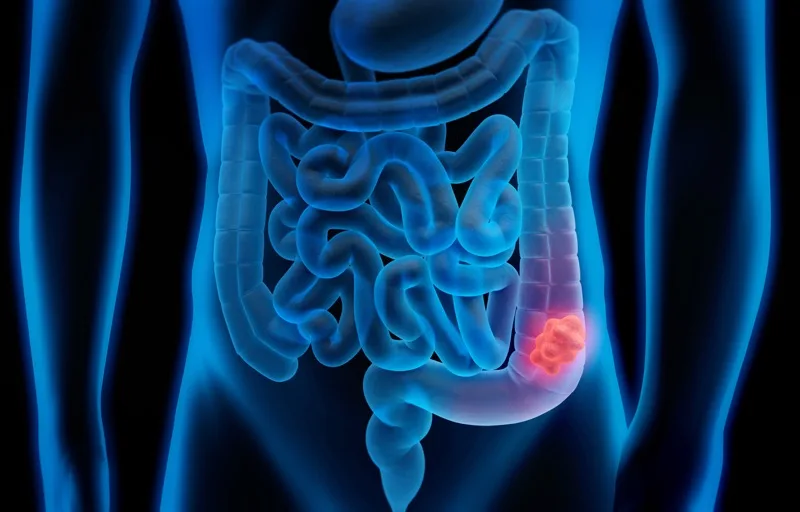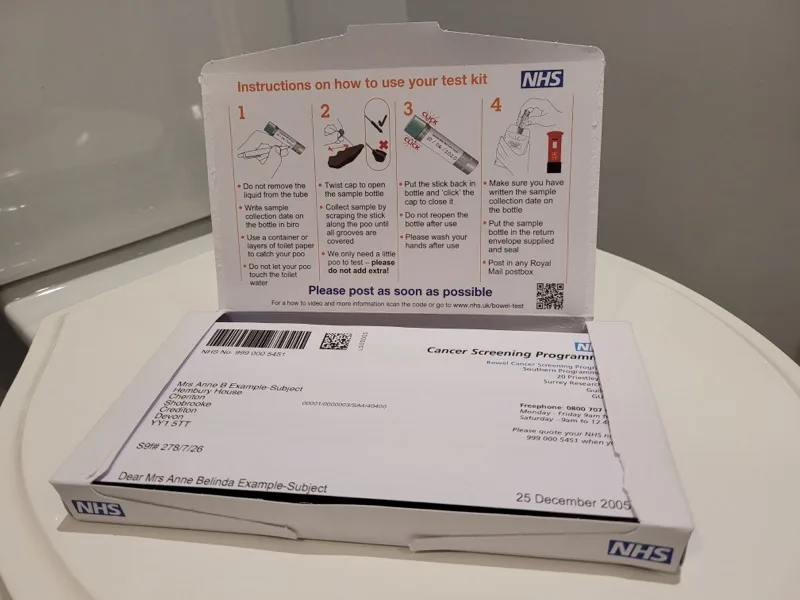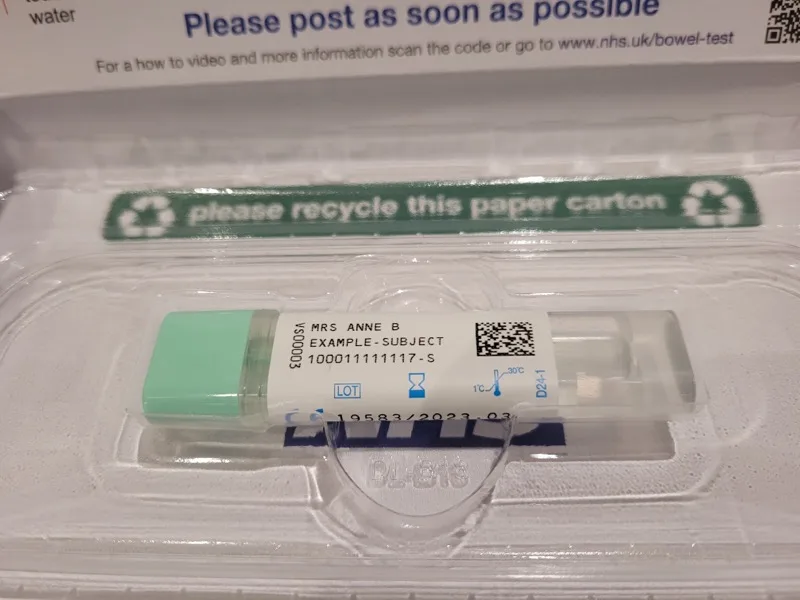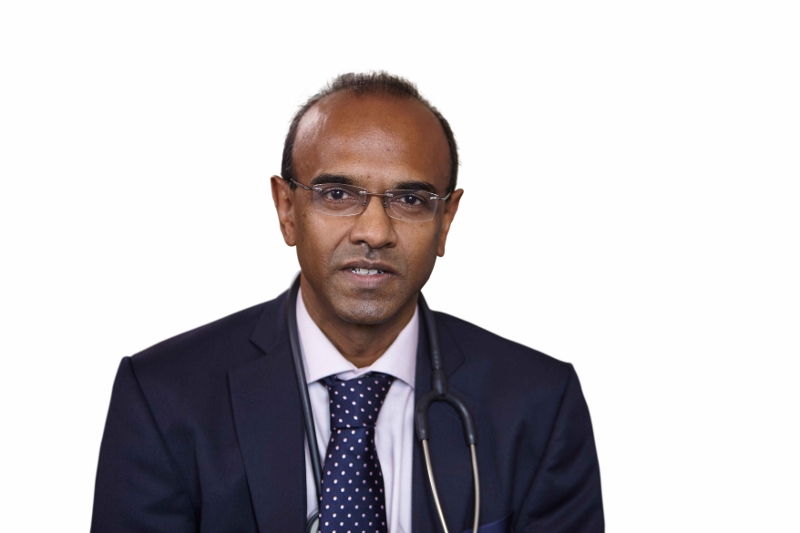
Bowel cancer is the third most common type of cancer in England. While bowel cancer can affect anyone at any age, some people are at more risk and early diagnosis is key to saving lives, says Dr Bola Owolabi, a GP and Director of Health Inequalities Improvement at NHS England.

“One crucial way we are working to improve health inequalities is by enabling more people to have their cancer diagnosed at an early stage, when treatment is often less invasive and more successful,” says Bola.
“There are two key ways to do this. One is to take part in NHS bowel cancer screening when you’re invited, and the other is to contact your GP practice if you notice changes in your health. Finding cancer at an early stage means there’s a much higher chance of it being treated successfully.”
What is bowel cancer?

The large bowel is part of our digestive system which helps to absorb water from our food, as well as remove food waste from our bodies. Cancer can develop in any part of the large bowel, including the colon and rectum. It happens when cells grow out of control and cause a tumour.
Sometimes, cells from the tumour cancer break away and spread to other parts of the body. If this happens, it becomes more difficult to treat the disease successfully. Screening works by spotting signs of bowel cancer early, even before you can see or notice any symptoms and there’s more information about that below.
If you notice signs and symptoms, then it’s not screening that you need so don’t wait to be invited – it’s important that you contact your GP practice and get checked out.
Bowel cancer isn’t always obvious

“Bowel cancer is the UK’s second biggest cancer killer, which is scary,” says Dr Anisha Patel, a GP.
“Being diagnosed with stage 3 bowel cancer at the age of 39 was a real shock. I am fit and healthy and don’t have a family history of bowel cancer,” says Dr Patel.
“I had some early symptoms back in January 2018. I was feeling quite tired, but I was a busy GP, mum to two young children aged 5 and 6 burning the candle at both ends.
“I thought I was a little bit stressed and developing irritable bowel syndrome because I was getting more constipated and with this constipation, I started then getting a little bit of blood on the toilet paper that I thought were piles.
“I saw my GP when the symptoms started, but my blood tests didn’t suggest anything was wrong.”
“As time went on the symptoms started to get worse. I started to need the loo more frequently and more urgently and started to get tummy pains. I also noticed the shape of my poo changed. It became more ribbon-like.
“It can be difficult to talk about our toilet habits, but I confided in my husband who is a gastroenterologist specialising in bowel cancer and we agreed that I would go back to the GP.
“I think at that point, as many people do, I was sort of putting my symptoms down to other potential causes. But this time, my bloods didn’t come back as normal and my GP referred me for further tests and I was diagnosed with bowel cancer.”
“I felt – hopelessly lost, distraught, and directionless, and at other times inconsolably upset, angry, and irritated. I was scared as I went in for the operation to remove the cancer tumour. I didn’t know what I was going to wake up to. Would the cancer be gone? Would I need chemo-radiotherapy?
“Thankfully, my tumour was removed completely and I had three months of chemotherapy to reduce the risk of the cancer returning.”
Every year, around 42,900 new cases of bowel cancer are diagnosed in the UK and while the majority of cases are in people over 50, Bowel Cancer UK estimate 2,600 of these in people under the age of 50, like Dr Patel. Dr Owolabi says:
“If your stools are black or dark red or you have bloody diarrhoea please book an urgent appointment with your GP practice or call NHS 111.
“If you are bleeding non-stop from your bottom or there is lots of blood in the toilet, for example the water turns red, or you see large blood clots then please go to A&E or call 999.”
If you notice any of these, contact your GP practice:
• changes in your stools, such as having softer stools, diarrhoea or constipation
• needing to go to the toilet more or less often
• blood in your stools, which may look red or black
• bleeding from your bottom
• often feeling like you need to go to the toilet, even if you’ve just been
• tummy pain and/or bloating
• losing weight without trying
• feeling very tired for no reason
Dr Patel and Dr Owolabi urge people not to feel embarrassed about talking to their doctor if they have symptoms they are concerned about.
Dr Owolabi says: “If you feel uncomfortable talking about your bowel movements or worries, please remember we’re used to examining all parts of the body and hear about things like this all the time.”
Dr Patel adds “Please come to see us if you think something doesn’t feel right. It’s particularly important to contact your GP practice if you have had symptoms for three weeks or more. It might not be cancer – but if it is, finding it early makes it more treatable. And if symptoms continue after you’ve seen the doctor, like mine did, please go and see your GP again.”
Don’t put off bowel cancer screening

People aged 56 -74 years old and most 54 year olds, are invited to take part in the NHS bowel cancer screening programme every two years, using a home testing kit called a Faecal Immunochemical Test (or ‘FIT kit’ for short). The programme is currently expanding to also include all over 50s, so you may receive a test before you’re 56. People 75 and over can get a FIT kit by phoning 0800 707 60 60.
People are sent a FIT kit every two years. It requires one small sample of poo which is done in the privacy of your own home and returned in a sealed bottle in the envelope provided. You don’t need a stamp. It is tested for small traces of blood, a possible sign of cancer, that are not visible by eye. The presence of blood doesn’t mean you have bowel cancer, but further tests are usually advised.
Dr Patel says: “If you or anyone in your family gets a test kit through the door, I plead with you – don’t put it off. It takes just a moment but can help spot cancer even if you don’t have any obvious symptoms.”

About 98% of people who use their bowel cancer screening kit do not need any further action, and 2% are asked to go to hospital for further tests. Around 9 in 100 of those people who go to hospital for further tests will be diagnosed with cancer. However, a further 55% will have polyps found during their hospital procedure.
Dr Owolabi says: “Polyps are not cancer, but may develop into cancer over time. If you have polyps, these can be easily removed.
“If bowel cancer is diagnosed early, it’s treatable and can be curable. The FIT kit really can save your life.”
And if you develop symptoms like the ones above after you’ve done an NHS bowel cancer screening test, do get them checked out.
You can find out more about bowel cancer and bowel cancer screening online at NHS.UK/conditions/bowel-cancer.
We have to talk about it
Dr Patel continues to share her story to raise awareness of bowel cancer and to help alleviate the stigma surrounding this cancer. Dr Patel says, “With the help of my GP, specialists, nurses, online support groups and my network of family and friends, I have tried to turn this negative situation into a positive.
“If you have symptoms, don’t delay contacting your GP practice – early diagnosis saves lives. And when you receive your bowel cancer screening FIT kit, don’t put it off, just get it done and get on with your life.”

















